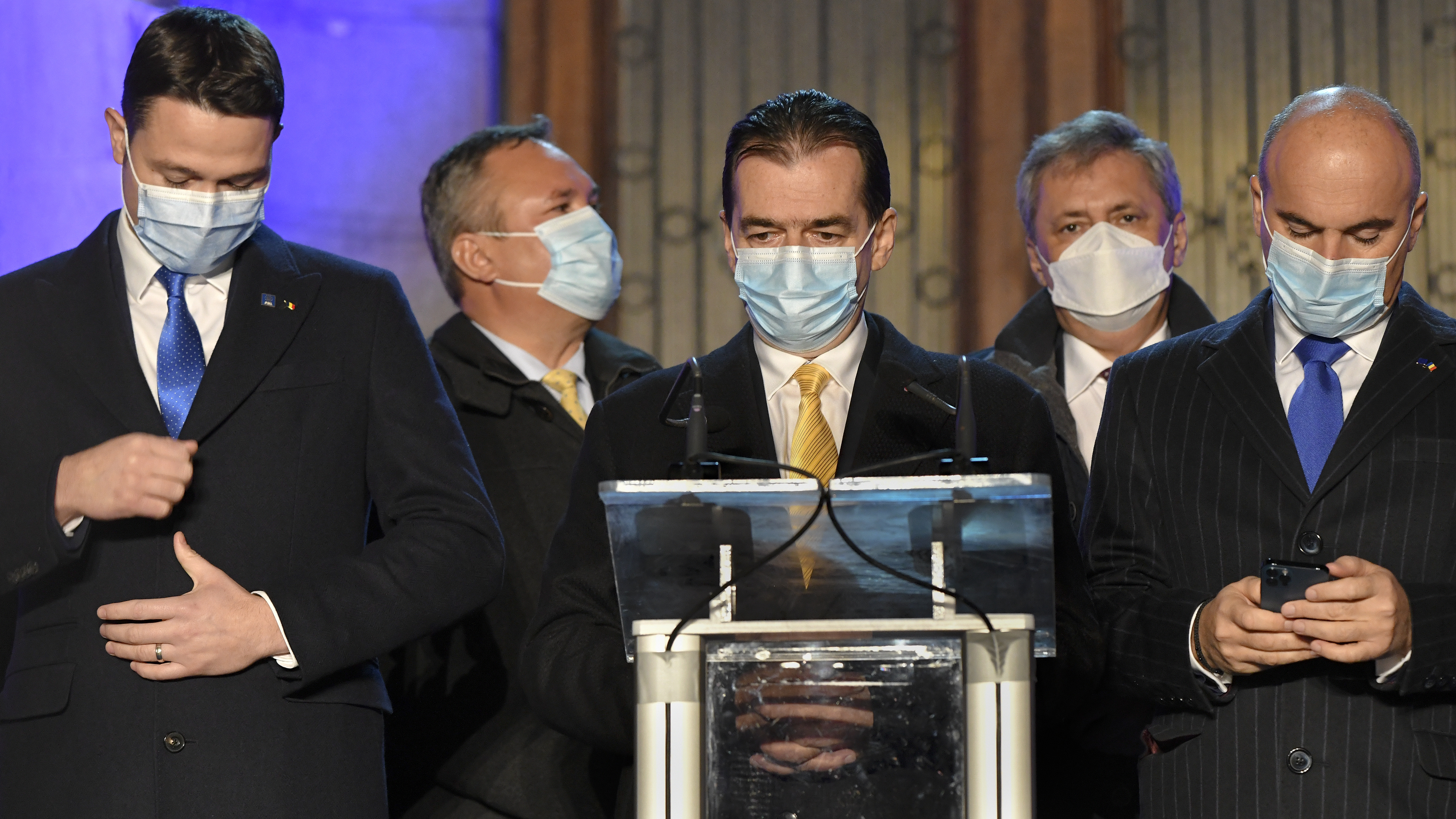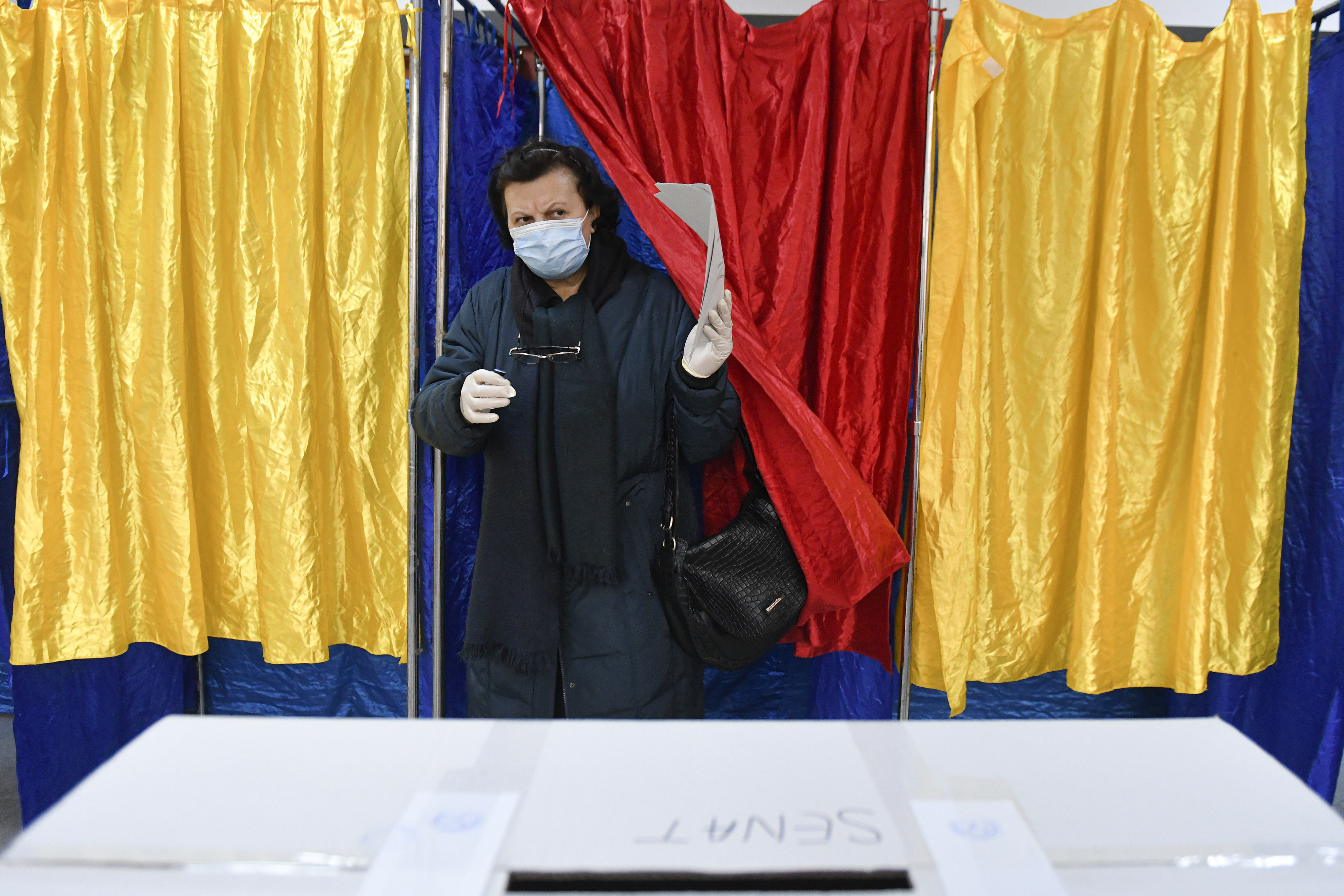
Initial results show the Prime Minister Orban's PNL is on course to form a government in alliance with a smaller party. (Photo: AP)
Romania's Prime Minister Ludovic Orban has claimed victory in the country's parliamentary election, in a much tighter race than was predicted.
Orban's pro-Europe National Liberal Party (PNL) is confident about remaining in power through an alliance with at least one smaller party.
Meanwhile, Romania's opposition Social Democratic Party (PSD), gained a better-than-expected result in an election marred by a record low turnout.
However, the party is unlikely to be able to return to government as it may struggle to find allies in the parliament.
With 50 percent of votes counted, the PSD has secured 30 percent, while the governing PNL has 25 percent of the vote.

CLICK: THE SCIENCE SHOW YOU NEED IN YOUR LIFE
More than 18 million Romanians were eligible to take part in the vote, carried out with the now familiar virus safety measures of social distancing, mask wearing and hand hygiene.
But broad disillusion with Romania's political class along with a harsh second wave of the coronavirus pandemic depressed turnout, which stood at around 33 percent, a record low for a parliamentary election.
The low turnout may have helped the Social Democrats' resurgence, according to analysts.
After an earlier exit poll showed the PSD putting in an unexpectedly strong performance, the party leader Marcel Ciolacu said: "I expect Orban's resignation, it's what Romanians have asked for with their votes."
However, if the trends in the initial results are confirmed the PNL should still be on course to form a government in alliance with the smaller, recently formed USR-Plus party, which has so far won 15 percent.
It can also ally with the small UDMR party representing the country's Hungarian minority, which is on course to win 6 percent and is keen to cooperate with the liberals.
Orban noted that the result could be affected by votes cast by Romanians abroad, which will mostly be counted on Monday.
Romanians living abroad are younger than average and thought to favour USR-Plus and its promise to clean up Romania's political scene.
They are also keen voters, with approximately 260,000 expatriate Romanians casting ballots, twice as many as in the 2016 election.
Romania has had string of governments and five prime ministers in five years.
"Given the fact that the sociological researches do not take in account the votes between 7:30 p.m. and 9 p.m., nor the extremely numerous votes outside Romania and they still continue to come, also taking in account the error margin and all the evaluations we did, the Liberal Party considers itself the winner of these elections," said Orban.
Romania is one of the European Union's poorest countries, and four million of its citizens have left in recent years to seek better lives elsewhere, particularly in western EU member states.
In a region where populists and nationalists have recently gained ground, Orban had won some support by pledging to modernize Romania and keep it on a "pro-European" path.

The PNL's handling of the pandemic is thought to have lost it support. (Photo: AP)
After casting his vote at a Bucharest school, 63-year-old retired electrician Gheorghe Preda said he had "no hope" of change. He said the two big parties "have been taking turns in power for 30 years and make lots of promises during the campaign, but forget them afterwards.”
But 104-year-old philosopher Mihai Sora, who won the admiration of many Romanians for doggedly turning out for hours during anti-corruption protests in recent years, said staying away from the polls was not an option.
"I voted with trust and hope, in thinking of my country and the future of its people," Sora wrote in a Facebook post.
Mother of two Adina Ionescu, 42, said she was hoping for "a government of young people, which cares about the environment and about Romanians' welfare."
The PNL had the advantage of being supported by President Klaus Iohannis, who brushed aside criticism that he disrespected his constitutional role by campaigning for the liberals.
The socialist party PSD has dominated Romanian politics over the past 30 years.
It won by a landslide in the previous election in 2016, but its years in power were marked by massive anti-corruption protests and spats with Brussels over controversial judicial reforms.
The governing the PNL's handling of the pandemic is thought to have lost it support. With relatively tough lockdown restrictions, the country has had 500,000 cases and 12,000 deaths.
The PSD has expressed opposition to some of the current anti-virus measures, although it has been criticised for lack of clarity in its own plan to combat the virus.
Orban's government has said it will not reinstitute a full lockdown like the one imposed in the spring, but experts fear an explosion of cases in the weeks to come.
Source(s): AFP, Reuters


